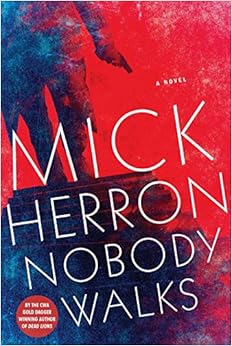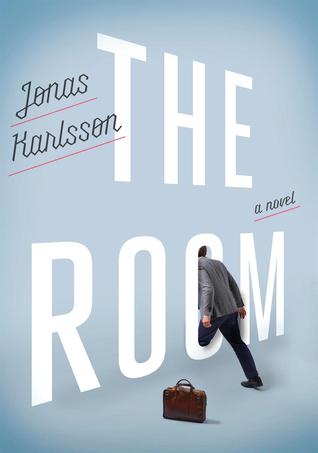 The PCU has now moved from its previous rundown quarters to new (to them) rundown quarters within the City of London, that square mile within the huge metropolis, where the original Roman settlement was and that constituted the entire city for hundreds of years. The City has its own police authority, and the PCU is now part of it, rather than London's Metropolitan Police. The good news is that their longtime nemesis boss, the saturnine Oscar Kasavian, is now out of the picture. The bad news is that while the new boss, Orion Banks, is younger, female and easier on the eyes, she has just as much impatience with the PCU's methods.
The PCU has now moved from its previous rundown quarters to new (to them) rundown quarters within the City of London, that square mile within the huge metropolis, where the original Roman settlement was and that constituted the entire city for hundreds of years. The City has its own police authority, and the PCU is now part of it, rather than London's Metropolitan Police. The good news is that their longtime nemesis boss, the saturnine Oscar Kasavian, is now out of the picture. The bad news is that while the new boss, Orion Banks, is younger, female and easier on the eyes, she has just as much impatience with the PCU's methods.Banks thinks the remit for policing the City is the huge financial crimes that happen every day, not the kind of oddities that the PCU normally handles. This time around, it's the suicide's buried corpse that a couple of stargazing teens see climb out of his coffin, lurch around and utter what sounds like "Ursa Minor." Then there's the hit-and-run killing of one of the teen witnesses and, just because these things always come in threes, the disappearance of the ravens from the Tower of London; the ravens whose presence is said to protect the crown from falling.
The book is as delightful as this series always is. Maybe the ancient and slovenly curmudgeon Arthur Bryant isn't quite as loony as usual, but the tradeoff is that we find out a bit more than we knew about his past. Although the book is filled with the characters that regular readers will love to revisit, this is one of those series titles that can be enjoyed almost as much by someone who hasn't read the PCU books before.
If you like the macabre, there's plenty more after you finish the PCU's necromancy.
Jonas Karlsson's The Room (translated from the Swedish by Darcy Hurford; Random House, February 17) is a short novel, but reviewers are saying it's long on entertainment value. Our narrator is Bjorn, an office drone among many others, in a company called The Authority. Bjorn has a wildly inflated view of his own superiority and has plenty of things to say on these pages about the shortcomings of his co-workers.
One day, Bjorn comes across the perfect office space. Everything about the way it is furnished is optimal, and it even includes a mirror that reflects the best face of Bjorn. In this office, he is supremely productive; his best self. So why is it empty? He shows it to his office colleagues and insists they cram in there for meetings. But the others tell him there is no office there. They are creeped out by watching Bjorn sit in an empty space, staring off and telling them he's actually working in that perfect office.
Who is right? We already know Bjorn is an unreliable narrator, so is he imagining this office, or are his colleagues such ground-down drones that they can't see what is right in front of them? Some readers are calling this a masterpiece, both funny and creepy.
The creep factor is extremely high in Phil Hogan's A Pleasure and a Calling (Picador, January 6). I was lucky enough to read an advance copy of the book last week and I had to revise my list of top reads of 2014 pronto. And I don't normally much like the creepy stuff.
William Heming owns a real estate firm in a leafy and prosperous village within commuting distance of London. He started there as a young apprentice and, over the years, he's been inside a large proportion of the houses in the village. Here's the thing, though. The last time he was inside many of those houses was long after they were sold and the new owners had moved in. You see, Heming always cuts a copy of the house key when he's showing a house, and very few buyers change the locks after they move in. It's almost like they're giving him permission to come in.
Heming likes his village and he likes things to be just so. To do that, access is sometimes important. For example, if a neighbor refuses to clean up after his dog, that neighbor may need to learn a lesson by having the dog's mess transferred to the nice white carpet in his living room. To anticipate what might need to be done, monitoring is a good idea, too, isn't it? Heming pays close attention and learns what people's schedules are and when their houses are unoccupied. He likes to get in there and just see what the residents are all about––and maybe collect a souvenir or two. Nothing expensive, really; just a token memento for his collection.
 When Heming finds himself powerfully attracted to a young librarian, Abigail, who he learns is having a love affair with a married man whom Heming knows is a cad, well, it's his duty to do something about it. And things become very complicated, very fast.
When Heming finds himself powerfully attracted to a young librarian, Abigail, who he learns is having a love affair with a married man whom Heming knows is a cad, well, it's his duty to do something about it. And things become very complicated, very fast.This book has tension and atmosphere by the bucketload, and some guilty laughs as well. The next time I look in a lighted window as I'm going down the street, or I wish I could exact some lone justice on an inconsiderate driver, I'll think of Mr. Heming. But what, exactly, will I be thinking?
There is nobody like Alfred Hitchcock for atmosphere, so when a book comes along that promises to be Hitchcockian, that's one I want to check out. In The Girl on the Train (Riverhead Hardcover, January 13) by Paula Hawkins, Rachel is a woman well into a downward spiral. The drinking started when she was unable to conceive and her husband left her. It accelerated when he remarried and had a baby with his new wife. Now a blackout-level drunk, she's lost her job.
Rachel doesn't want to admit she's been fired to her flatmate, so she continues to commute on the train. She begins to fantasize about a young couple she sees having breakfast on their roof deck every day. They seem so happy; they have the life she was meant to have and they live so close to where her ex-husband now lives. But one day, Rachel sees the female half of the couple in what appears to be a passionate embrace with another man.
The female half of the couple later disappears and Rachel decides to play amateur sleuth. It's not like she has much else to do. But when the police become involved and Rachel is entangled, her blackouts and her imagination will make her a person of interest. Rachel is another unreliable narrator whose story (and a grain of salt) I want to take on soon.
 How about some thrills along with the chills? I'm a big fan of Mick Herron's Slough House series (Slow Horses and Dead Lions), but Nobody Walks (Soho Crime, February 17) is a standalone. Herron paints strong characters with a few strokes, adds layers of sarcasm with a knife and finishes off his canvas with sprays of violent action.
How about some thrills along with the chills? I'm a big fan of Mick Herron's Slough House series (Slow Horses and Dead Lions), but Nobody Walks (Soho Crime, February 17) is a standalone. Herron paints strong characters with a few strokes, adds layers of sarcasm with a knife and finishes off his canvas with sprays of violent action.Herron's latest protagonist is Tom Bettany, former Special Ops agent with MI-5. Tom retreated to a life of mind-numbing toil in France after his wife died, but now he's brought back to London because of the death of his son, Liam. The story is that Liam was out on his narrow balcony smoking a joint of powerful "Muskrat" when he fell to his death. Tom wants to know who sold Liam the Muskrat and how it is he was smoking it when there's no sign of a match or a lighter in Liam's flat.
Reappearing in London and asking questions soon makes Tom a target from several quarters, including a gangland captain, some crooks he put away in the past and the new chief of Tom's old MI-5 unit. Will one of his pursuers get to Tom before he finds out who's responsible for Liam's death and wreaks his revenge?
If you liked Ted Lewis's Get Carter (originally titled Jack's Return Home) or the movie starring Michael Caine, I'm thinking Nobody Walks will be right up your dark and menacing street.
 One of the all-time great espionage thrillers is James Grady's Six Days of the Condor (which was made into the terrific Three Days of the Condor with Robert Redford and Faye Dunaway). Forty years have passed since that book, so I was very pleasantly surprised to hear that Grady has written a sequel, titled The Last Days of the Condor (Forge, February 17).
One of the all-time great espionage thrillers is James Grady's Six Days of the Condor (which was made into the terrific Three Days of the Condor with Robert Redford and Faye Dunaway). Forty years have passed since that book, so I was very pleasantly surprised to hear that Grady has written a sequel, titled The Last Days of the Condor (Forge, February 17).Blowing the whistle on the CIA and then going on the run, as the Condor did back then, takes its toll on a guy over all those years. Condor, also called Vin in this book, has had a heart attack and is on some heavy-duty drugs for PTSD. When a federal agent who is supposed to be his minder is found killed at Condor's place, Condor goes on the run again, pursued by a killer called Monkey Man and a whole menagerie of others who want him dead.
Who to trust and who to kill, as Condor takes to the streets of DC? Kirkus Reviews says the "prolonged action scenes are terrific, and the bounding energy of [Grady's] writing carries you along the rest of the time." There is also a rumor that the book has already been optioned for a movie. I wonder if Robert Redford will return as the Condor?
We can't let the men have all the thriller action, so how about a couple of female protagonists getting in on the fun?
 Sarie Holland is a college honors student who gets into a big jam in Duane Swierczynski's Canary (Mulholland, February 24). Sarie makes the mistake of doing a favor for her boyfriend and gets busted by the narco squad. She refuses to roll on her boyfriend, but to avoid prosecution, she agrees to become a CI, a confidential informant, passing on information about the drug dealers she knows to her police contact, Ben Wildey.
Sarie Holland is a college honors student who gets into a big jam in Duane Swierczynski's Canary (Mulholland, February 24). Sarie makes the mistake of doing a favor for her boyfriend and gets busted by the narco squad. She refuses to roll on her boyfriend, but to avoid prosecution, she agrees to become a CI, a confidential informant, passing on information about the drug dealers she knows to her police contact, Ben Wildey.Sarie's a smart cookie and such a good CI that the ambitious Wildey presses her to get further inside and provide information about the more dangerous higher-ups in the business. That backfires in a big way, leaving Sarie targeted by the gang and the bent cops who work with them. But they didn't bargain for someone as clever as Sarie, someone who is sick and tired of being used and wants to get her own back.
Rebecca Scherm's Unbecoming (Viking Adult, January 22) seems like a perfect title for a book about a young woman, Grace, who is constantly shedding her old self to regenerate into someone different. But the new persona always seems to be what somebody else wants her to be, not who she really is––because that person, she feels, has never been good enough.
At the moment, Grace from Tennessee is now Julie from California, living in Paris and working as an art restorer for a sketchy little company. She monitors her old hometown paper on the internet, though, to keep tabs on Riley and his best friend, Alls. Grace had masterminded a heist scheme that would get the three enough money to leave little Garland, Tennessee way back in their rearview mirror. But while Grace made it overseas with a rolled-up painting canvas from the stately home they robbed, Riley and Alls were caught and sent to prison. They could be paroled soon and Grace wonders if they'll be coming for her.
Flashbacks take the reader to that previous life in Garland, when Grace felt the lack of her parents' love, then the welcoming warmth of Riley's family. She wanted to be what Riley and his family thought she was, but she could only be that girl on the surface. She always wanted something more, something different.
Early readers are saying that Grace is a thoroughly unlikeable but intriguing character. The marketing types are comparing the book to works by everybody from Patricia Highsmith to Donna Tartt and Gillian Flynn. I get that the protagonist is amoral, like Highsmith's Tom Ripley, and a manipulative conniver, like Flynn's Amy Dunne, but I hope there's more to the Donna Tartt comparison than a rolled-up stolen canvas. What I really hope is that there's only the most superficial truth to all of these comparisons, and that Rebecca Scherm has written a story all her own.






Nice! Lots of seemingly dark and twisty reads this post :) I've just put the Hogan, Scherm, and Karlsson titles in my list. Hawkins is already there and I'm really looking forward to starting.
ReplyDeleteHi Becky,
ReplyDeleteThat Hogan book is still haunting me. He really manipulates the reader expertly and I enjoyed every minute of it. I'm hoping to get an ARC of the Scherm book and start it soon.
Sister, I've added this whole preview to my list of books to read. The Hogan sounds deliciously creepy. You can count on Duane Swierczynski for a big shot of adrenalin and extremely tough women. I've been waiting for Fowler's next and I'm glad to hear it's his usual good stuff. I love his London duo.
ReplyDelete